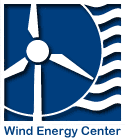Abstract: This presentation by the Director of CASA will cover several themes, including the IGERT, low-level wind estimation using radars, the proposed new Engineering Research Center in offshore wind energy and the potential to expand that into the realms of the IGERT, and possibly some new research that is emerging related to infrasound and wind energy. Professor McLaughlin will articulate the social, policy, behavioral, and technical interface issues around the use of CASA in weather-determined decision making and response.
CASA, the Center for Collaborative Adaptive Sensing of the Atmosphere, is a prestigious National Science Foundation Engineering Center with over $40 million in federal, university, industry, and state funding. The Center brings together a multidisciplinary group of engineers, computer scientists, meteorologists, sociologists, graduate and undergraduate students, as well as industry and government partners to conduct fundamental research, develop enabling technology, and deploy prototype engineering systems based on a new paradigm: Distributed Collaborative Adaptive Sensing (DCAS) networks. CASA is a collaboration among four academic partners: the University of Massachusetts (lead institution), the University of Oklahoma, Colorado State University, and the University of Puerto Rico.
Bio:
David McLaughlin is a Professor in the Department of Electrical and Computer Engineering and Director of CASA. The Engineering Research Center for Collaborative Adaptive Sensing of the Atmosphere (CASA), conceived by Professor McLaughlin and his collaborators, comprises a dense network of small radars that communicate with one another to sense hazardous weather patterns and distribute accurate warnings to people who need them.

